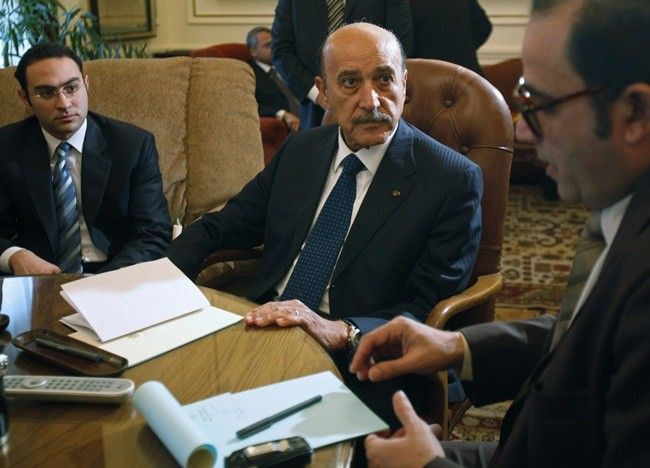Egypt VP, opposition meet; No deal on Mubarak's exit

Egyptian Vice President Omar Suleiman met with representatives of about 50 opposition groups on Sunday, including the Muslim Brotherhood as well as liberal parties Wafd and Ahrar, however results of the meeting inconclusive, with a wide divide on whether President Hosni Mubarak should step down immediately.
An official government statement released on Sunday by the office of the vice-president made no mention of Mubarak's resignation as many protesters have called for in protests now in their 13th day.
The statement said groups reached a consensus on the need deal with the nation's crisis. The statement said all groups recognized a lack of security for the populace, problems related to the crisis including challenges to public services, education, delivery of goods and services and damage to the economy. The statement also said the groups recognized attempts at foreign intervention into purely Egyptian affairs.
The groups also agreed on temporary constitutional and legal measures until the election of a new president by September, according to the official statement.
We cannot call it talks or negotiations. The Muslim Brotherhood went with a key condition that cannot be abandoned ... that he [Mubarak] needs to step down in order to usher in a democratic phase, Abdul Moneim Aboul Fotouh, a member of the Muslim Brotherhood, said, according to Arabic news network Al Jazeera.
Mohamed ElBaradei, the former UN inspector who has called for President Hosni Mubarak's resignation, told NBC he had not been invited. ElBaradei said last week he had a mandate from some opposition groups to represent them.
The whole idea was to move that regime to a new regime, ElBaradei told CNN. Mubarak continues to be a symbol of that old regime, and I will not give any legitimacy to that existing regime.
On Saturday, the leadership of Egypt's ruling party - the National Democratic Party - resigned. The party controls a super-majority in the nation's legislative system and controls the executive branch, led by President Hosni Mubarak.
Mubarak - who has ruled Egypt for three decades - said on Tuesday that he would not resign until the next election in September. He also said last week he fears the nation would fall into chaos if he resigned now.
He has promised to stay on until constitutional reforms can be applied to ensure fair elections, a move which has not placated the hundreds of thousands of protesters gathering on the streets of the nation's capital and in other cities in the country.
© Copyright IBTimes 2025. All rights reserved.





















